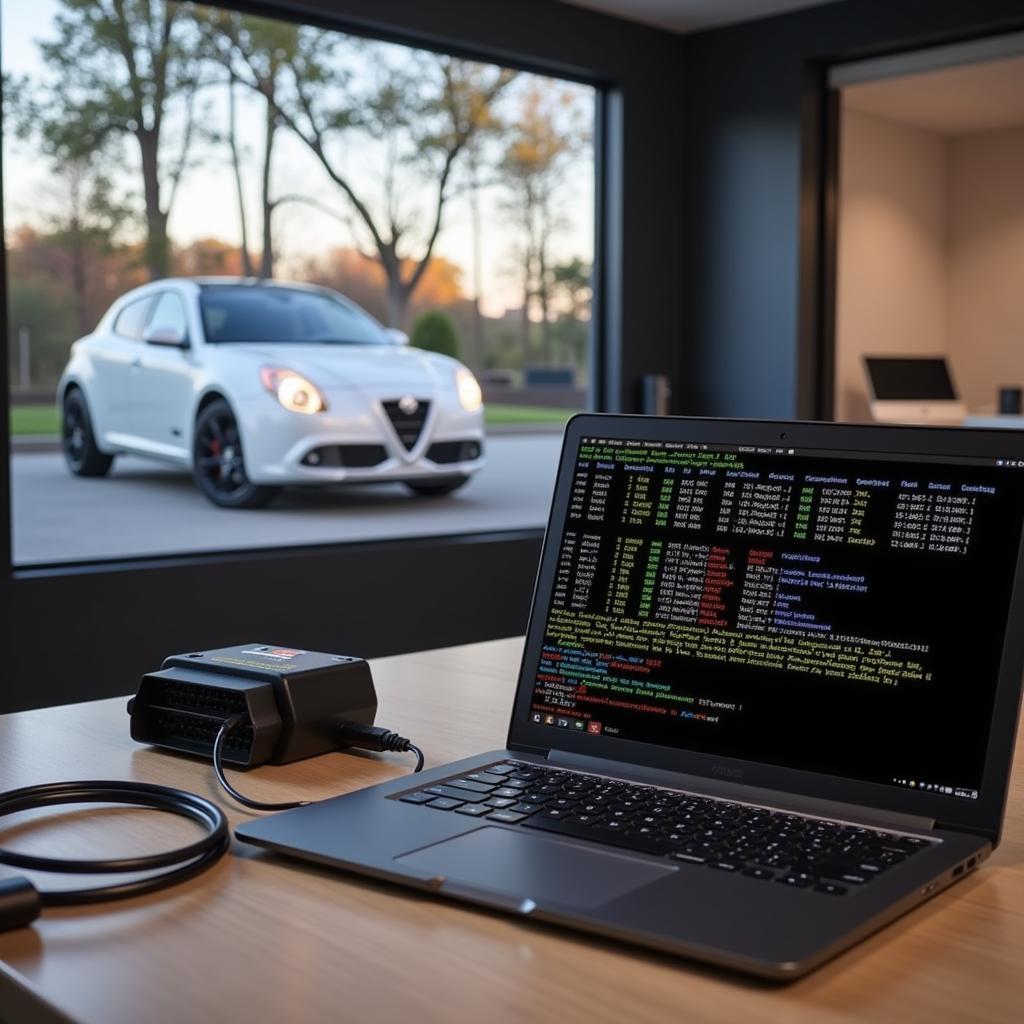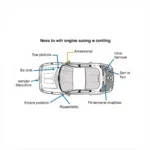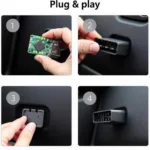Connecting your car’s OBD2 port to the open-source world of Ubuntu might seem unusual, but it opens up a realm of powerful and customizable diagnostic options. This comprehensive guide explores how to leverage your Ubuntu system for advanced vehicle diagnostics.
Why Choose OBD2 with Ubuntu?
While Windows-based OBD2 software dominates the market, Ubuntu provides a compelling alternative, particularly for tech-savvy car enthusiasts and professionals:
- Cost-Effectiveness: Ubuntu is free and open-source, eliminating the need for expensive software licenses.
- Customization: Ubuntu’s flexibility allows for tailored diagnostic setups and script creation for specific needs.
- Community Support: A vast and active community of developers and users offers support and resources.
- Security: Ubuntu’s robust security features protect your system from potential vulnerabilities.
Setting Up Your OBD2 Ubuntu System
Transforming your Ubuntu machine into a diagnostic powerhouse requires a few key components:
- OBD2 Scanner: Select a compatible OBD2 scanner that supports Linux or has Linux drivers. Popular choices include ELM327-based adapters and devices from OBDLink and ScanTool.
- USB to Serial Adapter: Most OBD2 scanners connect via USB. If your scanner uses a serial connection, ensure you have a USB to serial adapter.
- Software: Several open-source OBD2 software options are available for Ubuntu. Popular choices include:
- Guzob: A user-friendly GUI application for reading and clearing diagnostic trouble codes.
- PyOBD: A Python library for interacting with OBD2 interfaces, providing flexibility for advanced users.
- AutoScanTool: A command-line tool offering comprehensive diagnostic capabilities.
- Drivers: Install the necessary drivers for your OBD2 scanner. Consult the manufacturer’s website or use Ubuntu’s built-in driver management tools.
Connecting Your Car and Ubuntu System
Once you’ve gathered the required hardware and software, follow these steps to connect your car and Ubuntu system:
- Connect the Hardware: Plug the OBD2 scanner into your car’s OBD2 port, usually located under the dashboard on the driver’s side. Connect the scanner to your Ubuntu system using the USB cable and adapter, if necessary.
- Identify the Port: Open a terminal window and type
dmesg | grep tty. This command displays the available serial ports. Identify the port assigned to your OBD2 scanner, often/dev/ttyUSB0or similar. - Launch the Software: Open your chosen OBD2 software and configure it to use the correct serial port identified in the previous step.
- Start Diagnosing: With the connection established, you can start reading and clearing diagnostic trouble codes, monitoring live sensor data, and performing various other diagnostic tasks.
Advanced OBD2 Usage with Ubuntu
Beyond basic diagnostics, Ubuntu’s flexibility allows for advanced OBD2 applications:
- Data Logging: Utilize scripts to log sensor data over time, enabling in-depth analysis of vehicle performance and fuel efficiency.
- Custom Dashboards: Create personalized dashboards to visualize real-time vehicle data in a user-friendly format.
- Remote Diagnostics: Set up remote access to your vehicle’s OBD2 data for convenient troubleshooting and monitoring.
Troubleshooting Tips
- Connection Issues: Ensure the OBD2 scanner is properly connected and the correct serial port is selected in the software.
- Driver Problems: Verify the necessary drivers are installed and functioning correctly. Update or reinstall drivers if needed.
- Software Compatibility: Ensure the chosen OBD2 software is compatible with your scanner and Ubuntu version.
Conclusion
Using OBD2 with Ubuntu unlocks a world of possibilities for vehicle diagnostics, offering cost-effectiveness, customization, and a supportive community. By embracing the open-source world, you gain powerful tools to understand and maintain your vehicle.
FAQ
1. Can I use any OBD2 scanner with Ubuntu?
Not all OBD2 scanners are compatible with Ubuntu. Look for scanners that explicitly mention Linux support or have available Linux drivers.
2. What are some alternative OBD2 software options for Ubuntu?
Apart from Guzob, PyOBD, and AutoScanTool, other options include OBD2Crazy, ODBTest, and CanToolz.
3. Can I use Ubuntu for professional car diagnostics?
While Ubuntu provides powerful diagnostic tools, professional-grade equipment might be required for certain tasks.
4. Where can I find support for using OBD2 with Ubuntu?
Online forums, communities dedicated to OBD2 and Linux, and the official documentation of the chosen software are valuable resources.
5. Is it safe to use OBD2 with Ubuntu?
Using reputable software and following proper procedures ensures safe and secure OBD2 diagnostics with Ubuntu.
Need assistance with OBD2 diagnostics or finding the perfect OBD2 scanner for your needs? Contact our expert team via WhatsApp: +1(641)206-8880 or Email: [email protected]. Our 24/7 customer support is here to help!


